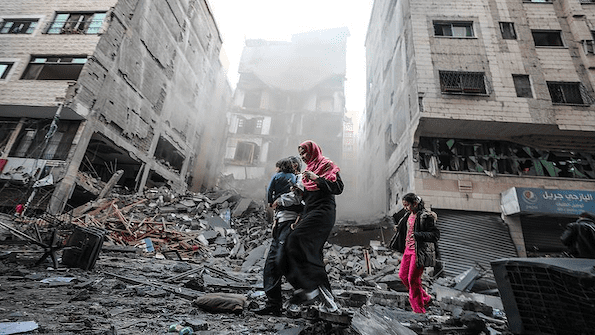In the early years of my migration to America, I was invited to the luxurious home of a respected lawyer in Florida. Upon my arrival, he introduced me to his wife and took me to a spacious foyer with a circular staircase. Suddenly, I heard him call out, “Come to Daddy.” I assumed he was calling one of his children, but to my surprise, a slightly smaller than a donkey-sized dog came running down the circular stairs, heading straight for my lawyer friend. The dog leaped onto him, embracing him as if he were its real father, and it seemed taller than the lawyer himself. I was terrified as I was generally not fond of dogs, especially not of this huge one that appeared like a donkey. I was amazed by the strong bond between my friend and the dog, as if they were truly father and son.
Days passed, and I was pressured by my young daughter to buy a dog because all her friends had one. The dog came to our home, bringing with it significant responsibilities in terms of food, drink, sleep, a vet, training, and two daily walks. Day by day, this dog, named “Cookie,” became a part of the family. I realized this when I once went to pick him up from a dog hospital and was met with the receptionist using a microphone to announce, “Please bring Cookie El-Bahery to the reception office!” I thanked God that my late father, Sheikh El-Bahery, didn’t find out that he had a canine grandchild named “Cookie El-Bahery.”
I took Cookie to a dog training school to learn proper manners, obedience, and to prevent harm to himself or others. Later on, I discovered that dogs in America enjoyed various amenities, such as dog hospitals, clinics, training schools, pet insurance companies, dog hotels, grooming salons, special dog shampoos, and even diet foods for overweight dogs! There are nail salons for dogs, supermarkets for all their needs, dedicated dog toys, annual beauty contests to choose the most beautiful dogs, dog TV stations (not for dog owners), special dog walking companies, dog sitters who work on an hourly basis like babysitters, and dog cemeteries.
During these difficult days of war in Gaza, it’s true that Hamas committed crimes against Israeli civilians, including children, women, and the elderly, resorting to horrifying methods and taking more than two hundred hostages. This has sparked international outrage, especially from the United States and Western Europe. In one week, the leaders of the United States, the United Kingdom, France, and Germany all visited the region for the first time in their history, and Israel received support from the United States and Europe, launching a massive air, land, and sea assault on Gaza. Israel pressured the relocation of over a million Palestinians from northern Gaza to the south. Despite this, airstrikes continued in the south, cutting off electricity and fuel, leading to a complete blockade on Gaza. Israel allowed less than one percent of Gaza’s needs to enter.
So far, the war has claimed the lives of approximately 1,500 Israelis and about 8,500 Palestinians, including many children.
As the Israeli attacks continue, the living conditions of Palestinians in Gaza worsen to an extent we have never seen before in the Middle East, especially as we are witnessing this live on TV.
From here, I urgently call upon the governments of the United States and Western Europe to try to treat the Palestinians in Gaza “like dogs,” regardless of the ongoing war and its severity. Treating them “like dogs” would ensure that the people of Gaza receive:
– One meal per day.
– Access to clean water.
– A place to sleep.
– A place to bathe.
– A hospital at least equivalent to a dog hospital.
– Medications.
– A place to answer the call of nature.
– Schools for their children.
– Medical clinics.
– Supermarkets.
– People to care for them instead of accusing them of terrorism or harboring terrorists.
– Graves for their deceased, rather than mass graves.
Some Israeli officials have accused Palestinians of being “wild dogs.” Can the people of Gaza receive the “treatment of dogs”?


When i heard Israël called Palestina people animals, i could only say that we treat our animals like our children.
I was wandering why I didn’t see dogs in Gaza. Now I know. To bad, because dogs know how to find people under the rubble.